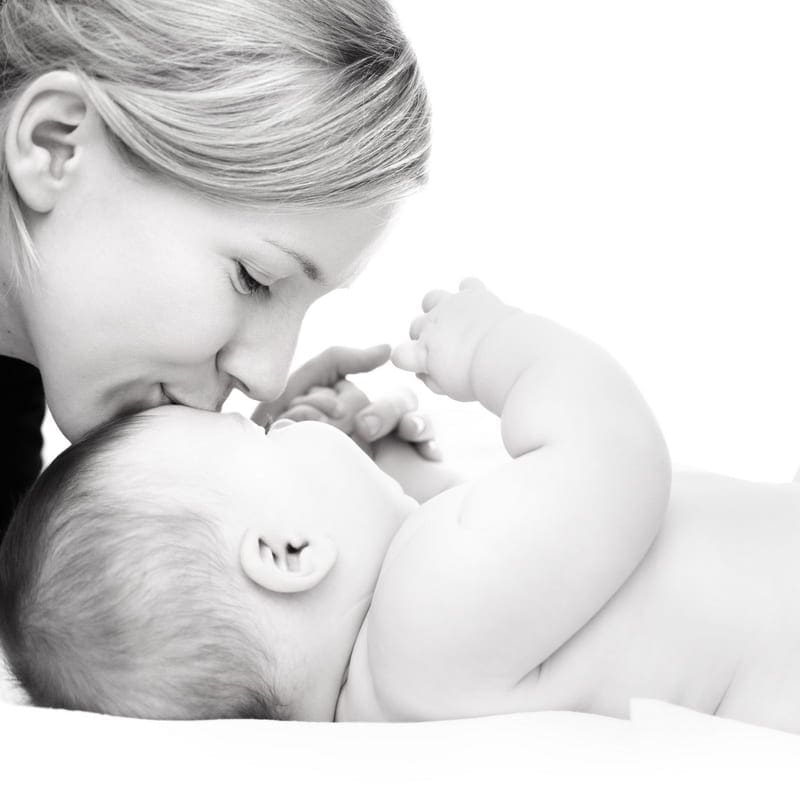The Impact of Alcohol and Smoking on Fertility
This article explores the effects of alcohol consumption and smoking on fertility, discussing the potential risks and consequences for both men and women.
Alcohol and Male Fertility
Excessive alcohol consumption can have a detrimental impact on male fertility. When men consume alcohol in excess, it can negatively affect various aspects of their reproductive health. One of the key areas that are affected is sperm quality. Studies have shown that excessive alcohol consumption can lead to a decrease in sperm count, as well as a decrease in sperm motility. This means that the sperm may not be as mobile or able to swim effectively, reducing the chances of successful fertilization.
In addition to sperm quality, alcohol can also disrupt hormone levels in men. Hormones play a crucial role in regulating the reproductive system, including the production of sperm. Excessive alcohol consumption can interfere with hormone production and balance, leading to hormonal imbalances that can further impact fertility. These hormonal imbalances can affect the production of healthy sperm and increase the risk of infertility.
It is important for men who are trying to conceive to be mindful of their alcohol consumption. Limiting alcohol intake and practicing moderation can help maintain optimal sperm quality and hormone levels, increasing the chances of successful conception. Seeking professional help and guidance from healthcare professionals can also be beneficial for couples struggling with fertility issues related to alcohol consumption.
Smoking and Female Fertility
Smoking can have detrimental effects on female fertility. It can lead to decreased egg quality, which can significantly impact a woman’s ability to conceive. When a woman smokes, the harmful chemicals in cigarettes can damage the DNA of her eggs, increasing the risk of chromosomal abnormalities. This can result in a higher likelihood of miscarriage and infertility.
In addition to decreased egg quality, smoking can also cause hormonal imbalances in women. The chemicals in cigarettes can disrupt the delicate balance of hormones in the body, affecting the regularity of ovulation. This interference with ovulation can make it more difficult for a woman to get pregnant.
Furthermore, smoking during pregnancy poses serious risks to both the mother and the baby. It can lead to complications such as placental abnormalities, low birth weight, premature birth, and developmental issues in the baby. The harmful substances in cigarettes can cross the placenta and negatively affect the baby’s growth and development.
To protect female fertility and increase the chances of successful conception, it is crucial for women to quit smoking. By quitting smoking, women can improve their egg quality, restore hormonal balance, and reduce the risk of miscarriage and infertility. It is a significant step towards creating a healthier reproductive environment.
Impact on Ovarian Function
Smoking can have a significant impact on ovarian function, with potentially devastating consequences for women’s fertility. The habit of smoking can accelerate the decline in ovarian function, causing the ovaries to age prematurely. This premature aging can lead to early menopause, a condition where a woman’s menstrual cycle ceases before the age of 40. Early menopause not only affects a woman’s ability to conceive but also brings about a range of physical and emotional challenges.
Furthermore, smoking can significantly reduce a woman’s fertility potential. The toxic chemicals present in cigarettes can interfere with the delicate hormonal balance required for ovulation. This interference can disrupt the regular release of eggs from the ovaries, making it more difficult for a woman to conceive naturally. Additionally, smoking can also affect the quality of the eggs produced. The DNA of eggs can be damaged by the harmful substances in cigarettes, leading to chromosomal abnormalities. These abnormalities increase the risk of miscarriage and infertility.
To put it simply, smoking poses a serious threat to a woman’s ovarian function and fertility. It is crucial for women who are trying to conceive or planning to in the future to understand the detrimental effects that smoking can have on their reproductive health. Quitting smoking is not only beneficial for overall health but also greatly improves the chances of successful conception and a healthy pregnancy.
Effects on Egg Quality
Smoking has a profound impact on the quality of eggs in women, posing significant risks to fertility. The harmful chemicals present in cigarettes can directly damage the DNA of eggs, resulting in chromosomal abnormalities. These abnormalities can interfere with the fertilization process and increase the chances of miscarriage and infertility.
When a woman smokes, the toxic substances in cigarettes can disrupt the delicate balance of hormones involved in the reproductive system. This hormonal imbalance can further affect the quality of eggs, making it more difficult for them to mature properly. As a result, the chances of successful fertilization and implantation are significantly reduced.
Furthermore, smoking can also impair the function of the fallopian tubes, which are responsible for transporting eggs from the ovaries to the uterus. The chemicals in cigarettes can cause inflammation and damage to the lining of the tubes, leading to blockages or scarring. This can prevent the eggs from reaching the uterus, further hindering the chances of conception.
It is important to note that the negative effects of smoking on egg quality are not limited to active smokers. Secondhand smoke can also have detrimental effects on fertility. Women who are exposed to secondhand smoke, either at home or in social environments, may experience similar risks and complications.
To mitigate the risks associated with smoking and preserve fertility, it is crucial for women who are trying to conceive to quit smoking. By quitting smoking, women can improve the quality of their eggs, reduce the risk of chromosomal abnormalities, and increase their chances of achieving a healthy pregnancy.
Risks during Pregnancy
Smoking during pregnancy can have severe consequences for both the mother and the developing baby. It can lead to a range of complications that can affect the health and well-being of both individuals.
- Placental abnormalities: Smoking increases the risk of placental abnormalities, which can restrict the flow of oxygen and nutrients to the baby. This can result in poor fetal growth and development.
- Low birth weight: Smoking during pregnancy is a major risk factor for low birth weight. Babies born to mothers who smoke are more likely to be born with a lower weight than those born to non-smoking mothers. Low birth weight can lead to a range of health problems for the baby.
- Premature birth: Smoking increases the risk of premature birth, which is when a baby is born before 37 weeks of gestation. Premature babies may face a range of health issues and may require intensive medical care.
- Developmental issues in the baby: Smoking during pregnancy can have long-term effects on the baby’s development. It has been associated with an increased risk of behavioral problems, learning difficulties, and developmental delays.
It is important for pregnant women to avoid smoking and exposure to second-hand smoke to protect the health of both themselves and their baby. Quitting smoking during pregnancy can significantly reduce the risks and improve the chances of a healthy pregnancy and birth.
Alcohol and Female Fertility
Excessive alcohol consumption can have a significant impact on female fertility. When a woman drinks alcohol in excess, it disrupts the delicate hormonal balance in her body. This disruption can interfere with the regularity of ovulation, making it more difficult for a woman to conceive. Additionally, alcohol can affect the quality of a woman’s eggs, increasing the risk of infertility and miscarriage.
Alcohol consumption can disrupt the production and regulation of hormones such as estrogen and progesterone, which are essential for a healthy reproductive system. This disruption can lead to irregular menstrual cycles and anovulation, where a woman does not release an egg during her cycle. Without regular ovulation, the chances of conception are significantly reduced.
Furthermore, excessive alcohol consumption can increase the risk of miscarriage in women who do become pregnant. Alcohol can impair the development of the embryo and fetus, leading to complications and potential loss of pregnancy. It is important for women who are trying to conceive or are already pregnant to avoid alcohol completely to minimize these risks.
It is worth noting that the impact of alcohol on female fertility is not limited to heavy drinking. Even moderate alcohol consumption has been linked to decreased fertility. Therefore, it is advisable for women who are trying to conceive to limit or eliminate alcohol intake altogether to optimize their chances of getting pregnant and having a healthy baby.
Combined Impact on Couples
When both partners consume alcohol excessively or smoke, the negative impact on fertility can be compounded, making it even more challenging to conceive. Alcohol consumption and smoking have individual detrimental effects on male and female fertility, but when both habits are present in a couple, the combined impact can be significant.
Excessive alcohol consumption can negatively affect sperm quality, motility, and hormone levels in men. This can lead to decreased fertility and an increased risk of infertility. Similarly, smoking can have detrimental effects on female fertility, including decreased egg quality, hormonal imbalances, and an increased risk of miscarriage and infertility.
When both partners engage in these harmful behaviors, the negative effects can be amplified. Alcohol disrupts hormonal balance and interferes with ovulation in women, while smoking damages the DNA of eggs, leading to chromosomal abnormalities and an increased risk of miscarriage and infertility. This combined impact can make it even more challenging for couples to conceive.
It is crucial for couples who are trying to conceive to be aware of the impact that excessive alcohol consumption and smoking can have on their fertility. By adopting healthier lifestyle choices, such as reducing alcohol consumption and quitting smoking, couples can improve their fertility outcomes and increase their chances of successful conception.
Seeking professional help is also important for couples struggling with fertility issues related to alcohol and smoking. Healthcare professionals can provide guidance, support, and appropriate interventions to help couples overcome these challenges and increase their chances of starting a family.
Reducing Alcohol and Smoking
Reducing alcohol consumption and quitting smoking are crucial steps towards improving fertility outcomes and increasing the chances of successful conception. Adopting healthier lifestyle choices not only benefits overall health but also positively impacts reproductive health.
Alcohol can disrupt hormonal balance and interfere with ovulation in women, while excessive alcohol consumption can negatively affect sperm quality, motility, and hormone levels in men. By reducing alcohol intake, both partners can improve their fertility potential and increase the likelihood of conceiving.
Similarly, smoking has detrimental effects on fertility for both men and women. In women, smoking can lead to decreased egg quality, hormonal imbalances, and an increased risk of miscarriage and infertility. It can also accelerate the decline in ovarian function, resulting in early menopause and reduced fertility potential.
Quitting smoking not only improves overall health but also reduces the risk of complications during pregnancy, such as placental abnormalities, low birth weight, premature birth, and developmental issues in the baby. In men, smoking can impair sperm quality and motility, decreasing fertility potential.
By making the conscious decision to reduce alcohol consumption and quit smoking, couples can significantly improve their chances of successful conception. It is important to remember that these lifestyle changes may take time and require support. Seeking professional help and guidance from healthcare professionals can provide additional resources and interventions to assist in the process.
Creating a supportive environment and adopting healthier habits together as a couple can not only improve fertility outcomes but also strengthen the bond between partners. By taking proactive steps towards reducing alcohol consumption and quitting smoking, couples are giving themselves the best possible chance of achieving their dream of starting a family.
Seeking Professional Help
Couples struggling with fertility issues related to alcohol and smoking should consult with healthcare professionals who can provide guidance, support, and appropriate interventions. It is important to seek help from experts in the field who have the knowledge and experience to address the specific challenges that alcohol and smoking can pose to fertility.
Healthcare professionals, such as fertility specialists, reproductive endocrinologists, and obstetricians, can offer valuable insights and personalized treatment plans tailored to the unique needs of each couple. They can conduct thorough evaluations, assess the impact of alcohol and smoking on fertility, and recommend lifestyle modifications that can improve the chances of successful conception.
These professionals can also provide guidance on quitting smoking and reducing alcohol consumption, offering resources and strategies to help couples overcome these habits. They can educate individuals on the potential risks associated with alcohol and smoking, as well as the benefits of making positive changes for their overall reproductive health.
Furthermore, healthcare professionals can offer emotional support throughout the fertility journey, as coping with fertility challenges can be emotionally taxing. They can provide counseling services, connect couples with support groups, and offer strategies for managing stress and anxiety related to fertility issues.
In some cases, healthcare professionals may recommend assisted reproductive technologies, such as in vitro fertilization (IVF), to increase the chances of conception. These interventions can be discussed and explored in consultation with the healthcare team, who can provide detailed information about the procedures, success rates, and potential risks involved.
In conclusion, seeking professional help is crucial for couples struggling with fertility issues related to alcohol and smoking. Healthcare professionals can play a vital role in guiding couples towards healthier choices, providing support, and offering appropriate interventions to improve fertility outcomes. By working closely with experts in the field, couples can increase their chances of achieving their dream of starting a family.
Frequently Asked Questions
- How does alcohol consumption affect male fertility?
Excessive alcohol consumption can negatively impact sperm quality, motility, and hormone levels in men. This can lead to decreased fertility and an increased risk of infertility.
- What are the detrimental effects of smoking on female fertility?
Smoking can have several negative effects on female fertility. It can decrease egg quality, disrupt hormonal balance, and increase the risk of miscarriage and infertility.
- How does smoking impact ovarian function?
Smoking can accelerate the decline in ovarian function, potentially leading to early menopause and reduced fertility potential in women.
- What are the effects of smoking on egg quality?
Smoking damages the DNA of eggs, which can result in chromosomal abnormalities and an increased risk of miscarriage and infertility.
- What are the risks of smoking during pregnancy?
Smoking during pregnancy can lead to complications such as placental abnormalities, low birth weight, premature birth, and developmental issues in the baby.
- How does excessive alcohol consumption affect female fertility?
Excessive alcohol consumption can disrupt hormonal balance, interfere with ovulation, and increase the risk of infertility and miscarriage in women.
- What happens when both partners consume alcohol excessively or smoke?
When both partners engage in excessive alcohol consumption or smoking, the negative impact on fertility can be compounded, making it even more challenging to conceive.
- Can adopting healthier lifestyle choices improve fertility outcomes?
Absolutely. By reducing alcohol consumption and quitting smoking, individuals can improve their fertility outcomes and increase their chances of successful conception.
- Should couples struggling with fertility issues seek professional help?
Yes, couples facing fertility issues related to alcohol and smoking should consult with healthcare professionals. These professionals can provide guidance, support, and appropriate interventions to address the specific challenges they are facing.











